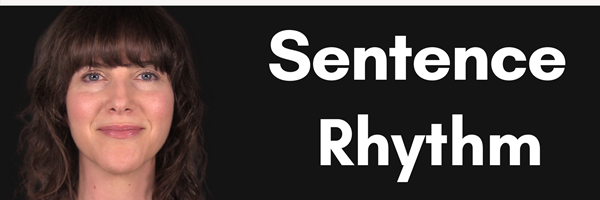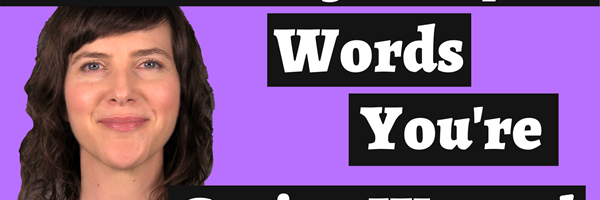(Video Transcript)
Hi, I’m Julie with San Diego Voice and Accent, and in this video, you’ll improve the rhythm of your spoken English by learning 4 tricks to make your words shorter.
If you have been watching my videos on English rhythm and word reductions, you know that American English loves to reduce words and syllables whenever possible. Some of my clients have told me that American English sounds lazy compared to their native language. Yes, there is some truth to that statement! The American accent is relaxed - words blend together, vowels are reduced, syllables are deleted - and for you to sound natural to a native speaker, you should also practice this same style of speaking.
I want to talk about how native speakers really talk - the way that they shorten words to make them faster and easier to say. Some of these methods will be familiar to you, and others will be brand new. Try to imitate the way you hear me pronounce these words so you can improve the naturalness of your English.
Contractions: don't, she's, I'm, you're
First, let’s talk about contractions. A contraction is a word or phrase that has been shortened by dropping one or more letters. In written English, you'll see an apostrophe (') in the place of the missing letters. Here are a few common contractions in American English:
don't for do not
she's for she is or she has
I'm for I am
and many more.
I often hear my clients pronounce both of the words represented by the contraction, rather than just one word. For example, some clients will say she is for she’s or I am for I’m. When you see a word that is written as a contraction, you should pronounce it like it’s one word. Let’s practice a few contractions:
She’s (she is/she has)
I’m (I am)
There’s (there is)
They’re (they are)
Could’ve (could have)
Must’ve (must have)
You’re (you are)
Word reductions: for and him
Now let’s talk about reductions. Reductions occur in unstressed syllables when the vowel in that syllable is changed to a more neutral vowel that is easier to say. Sometimes a consonant is also changed, and it’s usually deleted. I’ll give you some examples.
Let’s look at the word for. The full pronunciation is for, using the OR vowel.
for
But when for is unstressed, the vowel is often reduced to the ER vowel,
“fer, fer, fer”
Listen to the reduction of for in this sentence:
I bought this for you. “Fer” you, “fer” you.
Here’s an example of a reduction in which a consonant is deleted. When the pronoun him is unstressed, the initial H consonant can be deleted in spoken English, and it is pronounced as “um”. Listen to how I pronounce him in this sentence:
I’ll call him tomorrow.
Call him, “um, um, um”.
Reductions of contractions: coulda
Sometimes a word that is a contraction, like could’ve for the words could have, is reduced even more. Listen to how I pronounce could’ve in this sentence:
I "coulda" gone with you!
I reduced the second part of the contraction, the ‘ve part, to the schwa UH vowel.
Listen to the two words side by side:
Could’ve
"Coulda"
Could’ve
"Coulda"
In written English, you may see the contraction could’ve or you may see the full words, could and have, and those can both be said as “coulda”.
Informal contractions in American English: gonna and wanna
Now let’s talk about another type of reduction, and you may hear this called an “informal contraction”. It doesn’t really matter what you call it as long as you understand how to pronounce it!
In spoken English, the words going to are often reduced to "gonna". In this example, the vowels changed to the schwa UH /ə/, and some of the consonants were dropped.
Another example is with words what are you, which can reduce to "whatcha".
I’ll use both of these in a sentence:
I’m "gonna" do it tomorrow.
Going to reduced to "gonna".
"Gonna, gonna".
"Whatcha" up to?
What are you reduced to "whatcha".
"whatcha, whatcha".
I hope this video helped you to learn how to shorten words in spoken English. Thanks for watching! And I'd love to hear from you - contact me to learn how we can work together to perfect your American English pronunciation!



